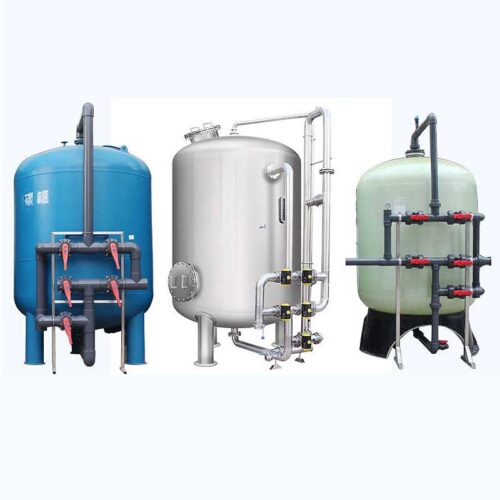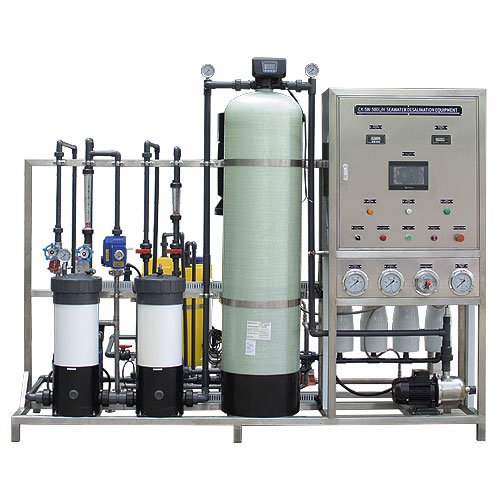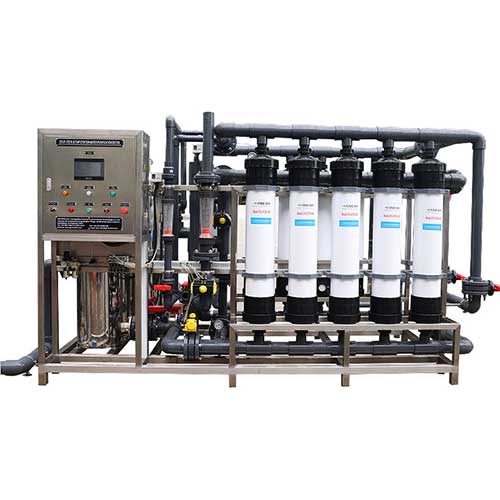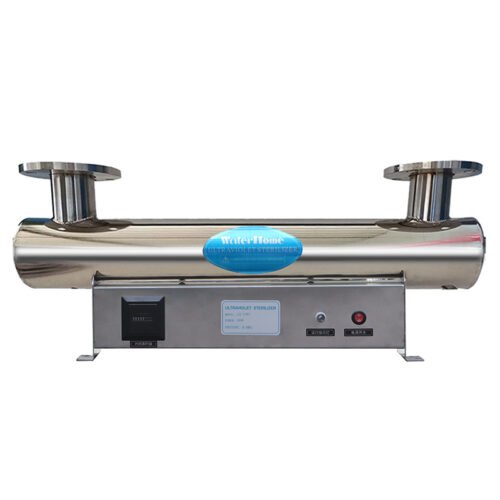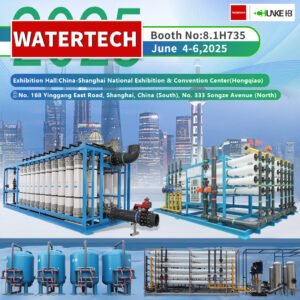Water Filter remove unwanted impurities from water such as sediment, taste and odour, hardness and bacteria to result in better quality water.
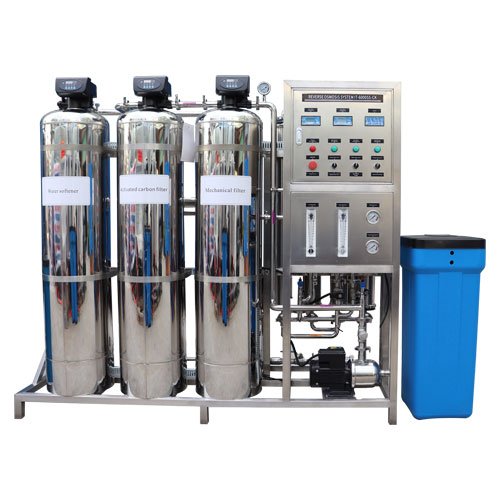
CHUNKE provides wide range of water filter system as regards to your application. We design and fabricate water filters to fix your water source, water analysis report and usage of treated water.
What is a Water Filter?
A water filter removes impurities by lowering contamination of water using a fine physical barrier, a chemical process, or a biological process. Filters cleanse water to different extents, for purposes such as: providing agricultural irrigation, accessible drinking water, public and private aquariums, and the safe use of ponds and swimming pools.
Filters use sieving, adsorption, ion exchanges, biofilms and other processes to remove unwanted substances from water. Unlike a sieve or screen, a filter can potentially remove particles much smaller than the holes through which its water passes, such as nitrates or germs.
The 5 Types of Filters
Subject to your application, i.e. what you’re trying to remove or in some circumstances trying to stop, there are 5 types of water filters:
1. Mechanical Filters
2. Absorption Filters
3. Sequestration Filters
4. Ion Exchange Filters
5. Reverse Osmosis Filters
Each one of these addresses a different water problem and many filters actually use a combination of these methods to perform multiple levels of filtration.
Why Water Filtration is Important?
It is virtually impossible to determine water quality on the basis of appearance. Multiple processes—such as physical, chemical, or biological analyses—have been developed to test contamination levels. Levels of organic and inorganic chemicals are some of the common parameters analyzed to determine water quality and contamination levels.
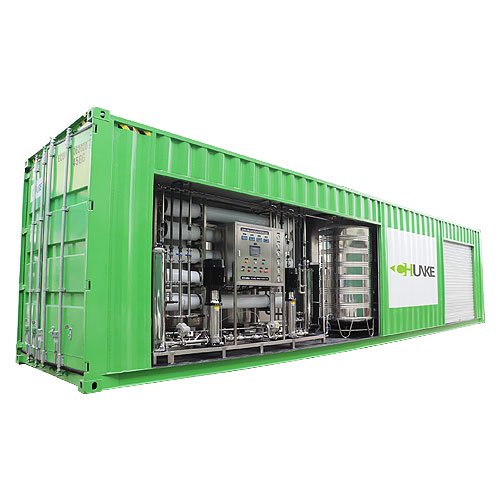
Tap water is often filtered in a water purification facility before it reaches the end user. Nevertheless, authorities test the water quality right after the water is filtered, before it goes in the municipal feed lines, which generally produces results above the required standard. What remains unaccounted for is the age of the feed lines and their length, however.
It is not uncommon for the pipes to be decades old, and by traveling a long time through them, filtered water can become polluted with everything it encounters along the way. Old pipes can redistribute microorganisms, bacteria, and viruses, as was the case in Flint, Michigan Crisis, and Chicago in regards to lead pipe. In the event that water is not filtered, the likelihood of exposure to harmful contaminants increases.
For instance, there is evidence that exposure to per- and polyfluoroalkyl substances (PFAS) can lead to adverse health outcomes in humans. The U.S. EPA reports that if humans or animals ingest PFAS, over time the contaminants can accumulate in the body. Exposure can lead humans to suffer from adverse health effects such as: a weakened immune system, cancer and thyroid hormone disruption.
How does Water Filter work?
Water filters work as a physical barrier that can block or trap debris (for example sand) and sometimes bacteria from passing through. Generally, the speed of the water flow will depend on the size of the gaps in the filter barrier or membrane. A fine filter with the smallest gaps will mean a slower water flow. A clogged filter will also slow the water flow.
Careful consideration should therefore be given to the quantity of water required, and the time it takes to filter, before you buy a water filter.
Usually, water filters with a faster water flow are more expensive.
What Are the Benefits of Filtered Water?
Top 5 Health Benefits of Filtered Water
Your choice for water consumption impacts more than just taste. We recommend having your water filtered and softened to get the most out of drinking it. Here are the top 5 reasons you should be drinking filtered water.
Filtered Water is Chlorine-Free
Filtering your water will remove most of the chlorine found in your tap water. Companies often use chlorine to clean water of impurities. It may be seen as clean water, but it’s not necessarily safe to consume. Chlorine, in large amounts, can have several negative health effects on the body. You can avoid these health hazards with a water filtration system.
No Metals or Minerals
Other impurities are also removed from filtered water. These include lots of sediment, mold, dirt, and rust. These come from rusty and dirty pipes that your tap water runs through. That means that whatever is in the pipes is going directly into your cup. Pipes won’t stay clean and buildup is common for homeowners. You can avoid consuming these foreign impurities with filtered water.
Better Taste and Smell
Having your water filtered also improves its taste and smell. Tap water can taste less appealing and can carry an unpleasant smell that is not very inviting. This is especially the case in areas with lots of natural water sources. You can enjoy a cleaner, more purified taste with a water filtration system.
Removes Bad Bacteria
Avoid thousands of bad microorganisms in your water supply with a water filter. Some bacteria found in tap water are dangerous and can make families sick. This is due to illnesses and diseases born from excessive bacteria. Water with microorganisms filtered out is safer for consumption.
Provides Necessary Vitamins and Minerals
You can still consume necessary minerals and vitamins with filtered water! Some of these vitamins and minerals include magnesium and potassium. Filtering your water keeps the good parts in and keep the bad bacteria out.
Is It Safe to Drink Filtered Water?
Drinking filtered water lowers your risk of developing certain cancers by removing the chlorine. The list includes rectal, colon and bladder cancer. Although water filters remove the minerals that can be harmful to health, the minerals that you want to stay are kept in the water.
Is Boiling Tap Water the Same as Filtered Water?
The overwhelming conclusion is that filtered water trumps boiled water. Boiling water isn’t enough to completely purify the water because it leaves harmful contaminants such as lead and chlorine in there.
You can visit our pages and get more information about CHUNKE Water Filtration System.
What Are the 4 Types of Industrial Water Filters?
There are four methods of industrial water filtration: mechanical filters, reverse osmosis (RO), ultrafiltration (UF), and ultraviolet (UV).

